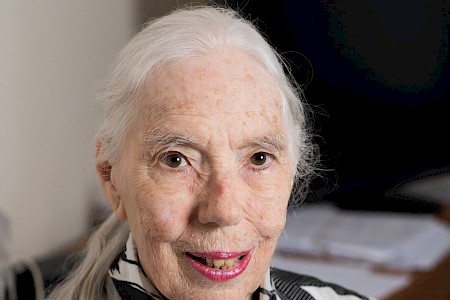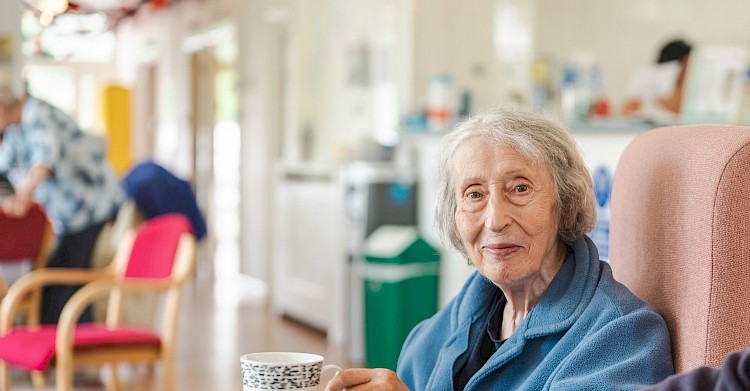The Campaign to End Loneliness’ ‘Next Five Years’ online conference brought together experts from around the globe, all focused on one issue: how to tackle, and ultimately reduce, loneliness and isolation.
The event explored the current landscape and considered what the emerging work and trends within this sector may be over the next five years.
Here, our interim head of impact Jess Doyle, impact and evaluation manager, Georgina Everett, and engagement officer, Sam Higgins, share their thoughts following the event:
Jess Doyle:
"A key focus of the event was inequalities, and the event started with a presentation from Professor Manuela Barretto (Social and Organisational Psychology, Exeter University) examining who is most at risk of loneliness. Professor Barretto and her team reviewed evidence about the unequal distribution of experiences of loneliness and we weren’t surprised to hear age being a key factor within the inequalities uncovered.
"The closing statement of Professor Baretto’s presentation was that loneliness cannot be addressed at an individual level and must be acknowledged as a social justice issue. A key takeaway from this presentation was the emphasis on the need for research and longer-term evidence to understand the needs of specific marginalised groups.
"As an organisation tackling loneliness for a marginalised group (people aged 75 and over) we are acutely aware of the lack of longer-term evidence and the need for further research in this area. We’re the only UK-wide charity focused on supporting people in this age group, and we will continue to share our learnings and findings as our research grows.
"It was great to learn what other organisations are doing in this space; many parallels could be drawn between the activities and work being undertaken to tackle loneliness for different sections of the community. I was struck by the unique ways organisations are addressing loneliness.
"An address from Dr Christoper Mikton (World Health Organization) and Jakob Forssmed (Swedish Minister for Social Affairs and Public Health) shone a spotlight on the global response to loneliness and it was reassuring to hear actions are already underway. We are looking forward to reading the 2025 commission report and subsequent agenda, to identify and draw parallels between the activities of Re-engage and determine how we are contributing to the overall global response to tackling loneliness. A key responsibility of ours will be to ensure the voices of older people are included within the agenda and not forgotten in the sea of other voices that will be affected by the global response.
"The event provided opportunities to learn and connect at many levels and we were honoured to be a part of the discussions that took place."
Sam Higgins:
"I was pleased to present Re-engage’s work in tackling loneliness inequalities among not only people aged 75 and over, but older LGBT+ people too. I was struck by the enthusiastic response from other attendees at the conference and their interest in our work, particularly our rainbow call companions service. It’s great to see how many other organisations are keen to support work helping marginalised people."
Georgina Everett:
"I would echo Jess’s comment about how loneliness is a matter of social justice and requires systemic solutions. Although Professor Manuala Baretto highlighted the inequalities in experiences of loneliness and isolation, she pointed out that the root causes are often structural.
"I was particularly interested in the discussions about places and the built environment. Julia Thrift of the Town and Country Planning Association talked about ‘healthy neighbourhoods’ that allow people to live happy and healthy lives, describing them as ‘complete, compact, and connected’. Developing these necessitates speaking to people in different communities to understand their needs and how they can be addressed; Jakob Forrsmed talked about the work being done in Sweden, where teams have been door-knocking to reach older people to speak to them about how communities can be improved.
"Several speakers urged governments to build the consideration of loneliness and isolation into policy work across all departments, including housing, transport, environment, and health. Even speakers who focused on specific, local interventions highlighted outcomes that go beyond the individual. Andrew Wileman of The Salvation Army, for instance, described several local projects but finished by saying that loneliness should be recognised by those in power as being ‘a thread running through every single social issue’. We’re looking forward to seeing these discussions start to bear fruit."
-
View
More news

Maya Lord - a life full of surprises
On International Women's Day 2024, we revisit some of the remarkable women who use our befriending services to help reduce loneliness.
By Re-engage

Reminiscing about Re-engage
Elizabeth first volunteered at a Re-engage tea party in 1971. She looks back fondly on 50 years of Re-engage memories.
By Re-engage

